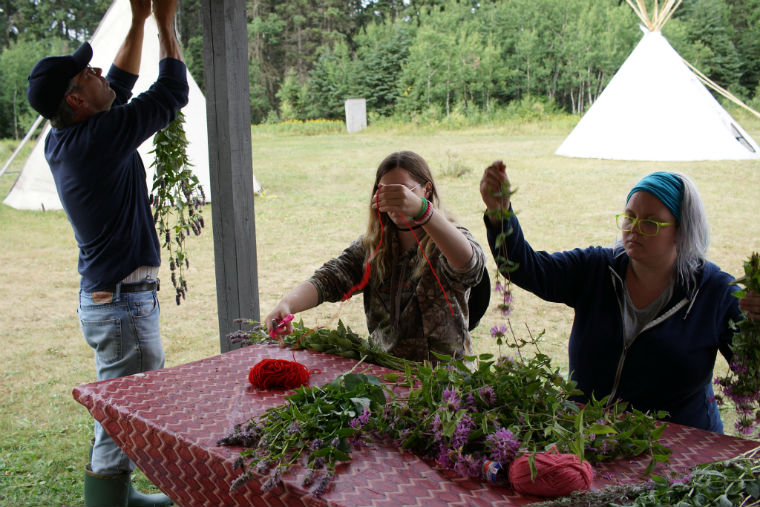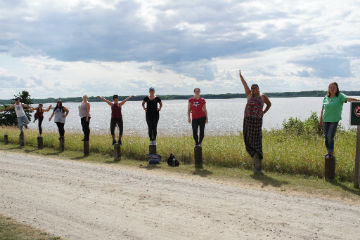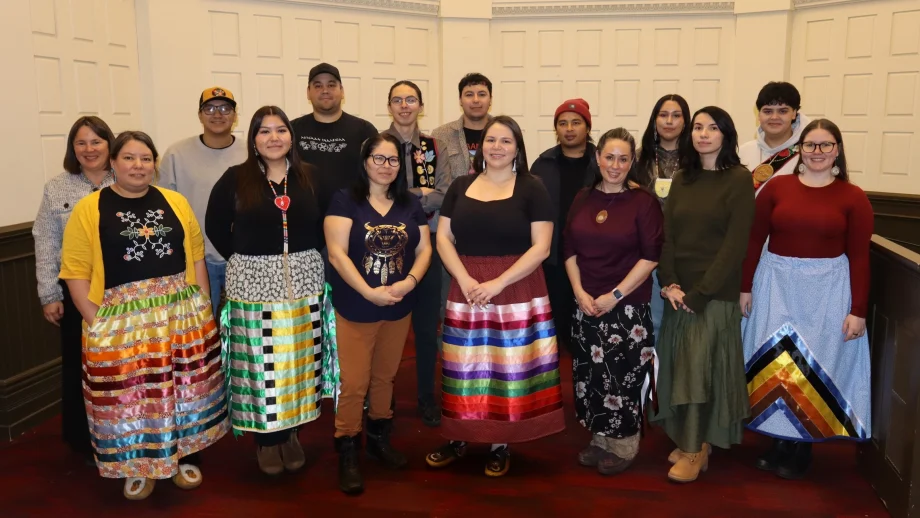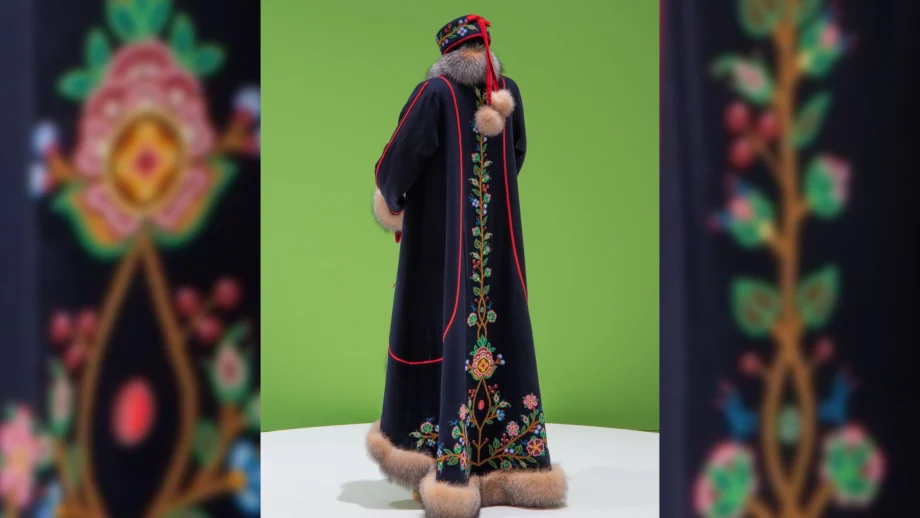
Students prepare and dry medicine Aug 2017 – photo by student Donna Kurt
WINNIPEG, MB – Eight University of Winnipeg students have just returned from a unique field school hosted by Keeseekoowenin Ojibway First Nation (located just south of Riding Mountain National Park) where they learned about Indigenous ethnobotany.
Students participate and learn from Elders about the 40 medicinal, nutritional and cultural uses of plants from Indigenous perspectives and knowledges in and around Keeseekoowenin. It is an opportunity to study the multiple use and meaning of plants, such as medicinal, ceremonial, aesthetic, and subsistence, by Indigenous communities along with the botanical identification and knowledge of these plants. The course is offered in July and August, taught by Professor Shailesh Shukla, Indigenous Studies, and the field school runs from July 31st to August 3rd.
“This course provides a unique experiential learning opportunity to weave academic knowledge (basics of botany and plant taxonomy) with Indigenous knowledge of Elders. Students participate in medicine walks, medicine picking and practice hands-on Indigenous protocols for sustainable use and conservation of local plants,” said professor Shukla.
Student Danielle Sinclair, who is completing her degree, says “I really wanted to take a land-based course because I want to hopefully become an educator.” One of the plants she studied in the field is wild raspberries, which she learned like to grow in burned out areas and are known as women’s medicine: the leaves are used during puberty, birthing and menopause. The berries are also eaten raw and used in jams.
Alyssa Kent studied seneca root (snakeroot), native to the Prairies. In her home community of Fairford, people have been using seneca root to help with sore throats and respiratory problems.
Located on Treaty One land, in the heart of the Métis homeland, UWinnipeg is deeply committed to

The Indigenous Ethnobotany class of 2017 with Elder Audrey Bone – photo by Donna Kurt
reconciliation through education. Effective September 2016, UWinnipeg became one of the first universities in Canada to introduce a mandatory Indigenous course requirement, in keeping with the Truth and Reconciliation Commission’s Calls to Action.
Students enrolled in the Indigenous ethnobotany course will prepare the plant profile cards on 40 plants combining the teachings of Elders and ethnobotany, which will then be compiled and presented to the Elders.
MEDIA CONTACT
Diane Poulin
Senior Communications Specialist
The University of Winnipeg
P: 204.988.7135
E: d.poulin@uwinnipeg.ca




